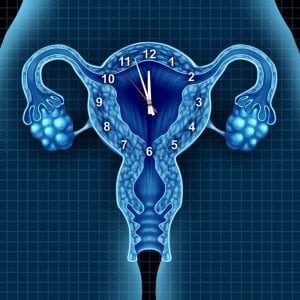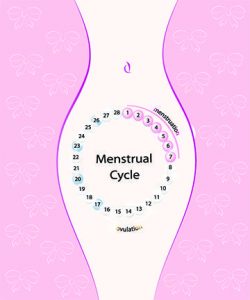The birth of a baby can be a joyful experience for couples and many couples conceive a healthy child fairly quickly. However, there are several common mistakes that some couples make that can prevent them from conceiving. In this article, we will explore 7 common mistakes couples make while trying to conceive, along with fertility tips to help solve the problems.
Waiting Too Long Before Trying to Conceive
 Age is a major contributing factor when trying to conceive. Many couples hold off on childbirth because they feel ill prepared and want more time to establish a career, build their savings, or purchase a bigger place. While some women can conceive in their 30s and even 40s, the chances of conception decrease by 50 percent between the ages of 20 and 40, with women past 40 having the least likely chance to conceive. Couples who are in a stable relationship and feel ready to have a child should conceive before the age of 35. This will not only increase the chance of conception, but it will also lower the risk of birth defects.
Age is a major contributing factor when trying to conceive. Many couples hold off on childbirth because they feel ill prepared and want more time to establish a career, build their savings, or purchase a bigger place. While some women can conceive in their 30s and even 40s, the chances of conception decrease by 50 percent between the ages of 20 and 40, with women past 40 having the least likely chance to conceive. Couples who are in a stable relationship and feel ready to have a child should conceive before the age of 35. This will not only increase the chance of conception, but it will also lower the risk of birth defects.
Not Consulting A Specialist
Many couples fail to consult a specialist when they first experience problems conceiving. A specialist can help determine her fertility cycle, diagnose any underlying health issues and give advice on how to conceive. Women who experience irregular cycles, missed or painful periods, pelvic infections, or who have a history of sexually transmitted diseases should quickly contact a specialist.
Too Much Stress
High levels of stress, depression and anxiety can have a negative effect on conception. Stress contributes to infertility by causing hormonal imbalances that interfere with the ovulation cycle, meaning women under constant stress ovulate less frequently. Stress can also lead to fertilization problems and prevent egg implantation. Women who suffer from stress should try to control or remove stress causing factors before trying to conceive. Studies have shown that certain modern therapies such as acupuncture and mind-body stress reduction programs may help reduce stress and improve fertility. Traditional remedies such as yoga and exercise also relieve stress while helping to maintain a healthy body.
An Unhealthy Lifestyle

Miscalculating Her Fertility Cycle
 Couples often miscalculate the woman’s fertility cycle. Some couples do not understand the ovulation cycle while others make the common mistake of assuming the woman is most fertile during ovulation. Most women have a 28-day ovulation cycle, however, this varies from woman to woman and can be shorter or longer. Women are also more likely to conceive two to five days before ovulation starts. Couples can keep track of the fertility cycle by purchasing an over the counter ovulation predictor kit, checking the cervical mucus, or counting back 14 days from the start of her period.
Couples often miscalculate the woman’s fertility cycle. Some couples do not understand the ovulation cycle while others make the common mistake of assuming the woman is most fertile during ovulation. Most women have a 28-day ovulation cycle, however, this varies from woman to woman and can be shorter or longer. Women are also more likely to conceive two to five days before ovulation starts. Couples can keep track of the fertility cycle by purchasing an over the counter ovulation predictor kit, checking the cervical mucus, or counting back 14 days from the start of her period.
Having Too Much, or Too Little Sex
This is a tricky one, it is believed that having sex frequently does not aid in conception, but rather, is actually counterproductive. For men with healthy sperm and fertility, frequently engaging in sex won’t hurt your sperm quality or counts.
However, for men with low sperm counts, having sex more than once every few days may make it more difficult to conceive due to the fact that your body takes time to produce new sperm. So frequent sex may mean that your body can’t produce enough sperm for every ejaculation, thus leading to a decrease in sperm count and possibly quality. On the flip side, while it’s true that having sex too often may deplete sperm stores without giving the testes a chance to make more, having too little sex may have a counter effect when it comes to sperm motility and sperm morphology. Therefore, a time frame of about 1-3 days is an ideal window between sexual encounters while trying to conceive, depending, of course on baseline sperm counts and quality.
Not Being Sperm-friendly
Certain chemicals and substances can kill or prevent sperm from entering the fallopian tubes. For example, most personal lubricants contain spermicide and will quickly kill sperm before it reaches the ovaries. Douches and vaginal sprays can wash away the cervical mucus and change the pH and acidity of the vagina, making it difficult for sperm to survive. Avoid these products or consult a doctor on which products are sperm-friendly.
When a couple has problems conceiving a child, it can make their lives stressful and cause difficulties within the relationship. Knowing the biggest mistakes couples can make during conception can help them find solutions to any problems they may encounter while trying to conceive.





